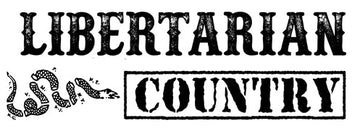The Question That Stumped So Many
"At what exact dollar amount does someone become morally obligated to give away their money to help the poor?"
This deceptively simple question triggered a tidal wave of disagreement in our Facebook community. From calls for billionaires to "do more," to claims that moral obligation kicks in at "excessive wealth," the responses were emotionally charged but logically underdeveloped.
And that’s precisely why we need to go deeper.
Let’s break it down — not with slogans, but with philosophy, moral reasoning, and principled libertarian clarity.
The Nature of Charity: Why Voluntarism Is the Only Moral Path
To understand moral obligation, we must first understand what charity actually is.
Charity, by its very definition, is the voluntary act of giving. It stems from compassion, goodwill, or personal conviction — not force. The moment it is demanded, coerced, or considered an obligation imposed by others, it ceases to be "charity" and becomes something else entirely: compulsion.
When you are morally obligated to give something away, you are no longer free. You are not choosing to give — you are being told that not giving constitutes a moral failure. But this raises a very serious philosophical problem: Who gets to decide that?
Who Decides What Is “Too Much”?
The idea that a person has "too much wealth" and therefore must give it away is rooted in envy-based ethics — a framework that measures morality not by the content of character, but by the number of zeroes in a bank account.
But here's the intellectual trap:
"He has more than he could ever use."
— A common but meaningless phrase
How do you measure what someone "needs"? By what standard? Yours? Society’s? The government's? The emotional reactions of strangers online?
Wealth, in and of itself, is not a moral failing. It is the outcome of value creation, risk, productivity, and market trust. To argue that a person becomes morally deficient simply because they have "a lot" — and that they now owe a moral debt to others — is to invert morality entirely.
It punishes achievement and rewards demand.
The Fallacy of Forced Compassion
If we accept the premise that a person is morally obligated to help the poor based on their wealth, we encounter a disturbing implication: The poor now have a moral claim to your labor and life energy.
This is antithetical to liberty.
True compassion is earned through goodwill and empathy, not extracted through guilt or social pressure. When charity becomes a social demand, it loses its soul. It becomes a performance, not a virtue.
Forced compassion is not compassion.
It is moral theater — a counterfeit of the real thing.
Why Morality Requires Freedom
A moral act is only moral if it is chosen. This is a foundational truth in moral philosophy.
You cannot be virtuous if you have no choice.
In a libertarian framework, the right to private property is non-negotiable. That includes not just land and possessions, but the money you earn — the direct product of your time, talent, and trade.
Once we accept the idea that someone becomes morally obligated to give their money away at a certain threshold, we are no longer debating charity. We are debating ownership. We are asking: “Does the individual own themselves, or does society own them?”
The libertarian answer is crystal clear:
You own yourself. You own your money. You decide how — and if — you give.
The Flip Side: The Poor Shouldn’t Be Forced to Subsidize the Rich Either
While this post defends the right of the wealthy to not be morally obligated to give away their money, the inverse is equally vital — and often overlooked:
The poor should never be forced to subsidize the rich.
Yet this is precisely what happens in many real-world systems cloaked in the language of equality and compassion.
Bailouts for billion-dollar corporations, government contracts awarded to politically connected firms, tax loopholes for the ultra-wealthy, and central banking policies that devalue the purchasing power of the working class — these are not examples of free-market capitalism. They are state-enforced wealth transfers, often from the bottom up.
Just as charity must be voluntary, profit must be earned. When the government intervenes on behalf of the powerful, using funds taken from the public — including the poor — we have left the realm of capitalism and entered a dystopia of cronyism.
In a truly free society, no one owes you their money —
and no one gets to steal yours either.
Let that principle stand on both sides of the coin.
Conclusion: The Compassion That Matters
To be clear, helping others in need is a beautiful thing — when done voluntarily, from the heart, and free of guilt-ridden coercion. There is great virtue in generosity.
But the question was about moral obligation. And the answer is unflinching:
No one ever becomes morally obligated to give away their money.
Because morality must be chosen, not commanded.
Because charity must be voluntary, or it isn’t charity.
Because a free society cannot exist where wealth implies moral servitude.
We are not here to serve others by force — but to lift others by choice.
Liberty begins where obligation ends.
Like this perspective? Join the conversation and share this post. And check out some awesome liberty-themed merch! 👇


